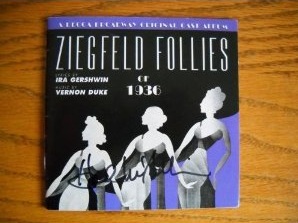Glossary
All | Dance | Other | People |
Showing: People
Aimee Simple: Aimee Semple McPherson was the first famous Pentecostal evangelist, seeking publicity to broaden the audience for her religious message, using modern technology (including the automobile and radio) -- truly a pioneer in religious history. The Foursquare Gospel Church which she founded is now a movement with more than two million members around the world. But most people know her name mainly for an infamous kidnapping scandal. Aimee Semple McPherson disappeared in May 1926. At first Aimee Semple McPherson was presumed drowned. When she reappeared she claimed to have been kidnapped. Many questioned the kidnapping story; gossip had her "shacked up" in a romantic "love nest," though a court case was dropped for lack of evidence.

Charles A. Lindbergh: In 1924, Lindbergh enlisted in the United States Army so that he could be trained as an Army Air Service Reserve pilot. He made the first solo nonstop flight across the Atlantic Ocean on May 20-21, 1927.

Cherokee: The Cherokees are original residents of the American southeast region, particularly Georgia, North and South Carolina, Virginia, Kentucky, and Tennessee. Most Cherokees were forced to move to Oklahoma in the 1800's along the Trail of Tears. Descendants of the Cherokee Indians who survived this death march still live in Oklahoma today. Some Cherokees escaped the Trail of Tears by hiding in the Appalachian hills or taking shelter with sympathetic white neighbors. The descendants of these people live scattered throughout the original Cherokee Indian homelands.
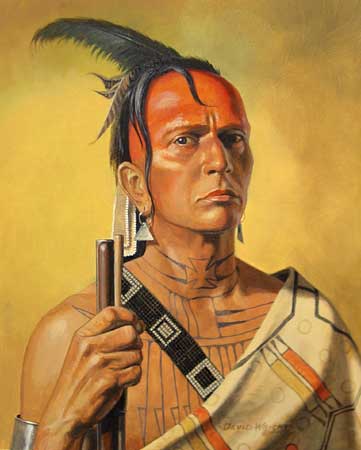
Chimney Sweep: Coal makes a sticky soot which does not all come loose with the use of a brush; chimney edges need scraping where soot builds up. People soon realized that fireplaces and their chimneys needed a cleaning, as a house full of soot and fumes is unhealthy. And so, the necessity of regular chimney sweeping began. Needless to say, the chimney sweep profession has changed since the early Victorian days. During the early 1960′s the switch to other, more convenient forms of heating – gas and electricity in particular, replaced coal as the primary source for central heating. Over the years, the fireplace has emerged from its slumber as merely an architectural decoration into a fully functioning appliance. As the popularity of fireplaces increased, so has the need for chimney sweeps, an old profession that is still growing today.

City Slicker: A person with the values generally associated with urban dwellers, typically regarded as unprincipled and untrustworthy.
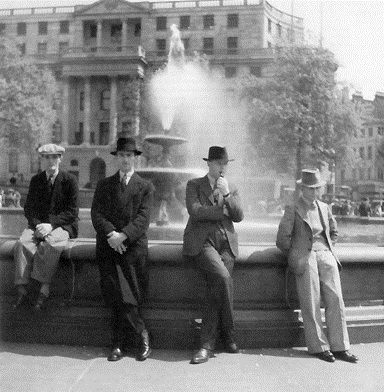
Comanche: The Comanches were fierce warriors who lived on the Southern Plains. The Southern Plains extend down from the state of Nebraska into the north part of Texas.

Cowboy: One who tends cattle or horses; especially, a usually mounted cattle-ranch hand.

Czar Nicholas II: The mounting pressures of World War I, combined with years of injustice, toppled the rule of Tsar Nicholas II in March 1917. Forced to abdicate, he was replaced by a Provisional Government committed to continuing the war. During the Bolshevik revolution, in early morning hours of July 17. 1918, the Tsar, his wife, children and servants were herded into the cellar of their prison house and executed.

Ed Wynn: Born Isaiah Edwin Leopold 1886-1966. Long-time Vaudeville star. An old-fashioned comedian, who, by recommendation by his son Keenan Wynn, became one of the world's most beloved clowns, and one of the best actors of his time. He was born on November 9, 1886. He performed in the Ziegfeld Follies, and later had a son Keenan in 1916. He later wrote his own shows, then known as the Perfect Fool. In 1941 at age 54, he became a grandfather. He became popular for roles throughout the 1950s and 1960s, best remembered for "The Ed Wynn Show" (1949), and for Mary Poppins (1964) as Uncle Albert, who reflects his old style charm. He continued to perform, until he died in 1966 at age 79.
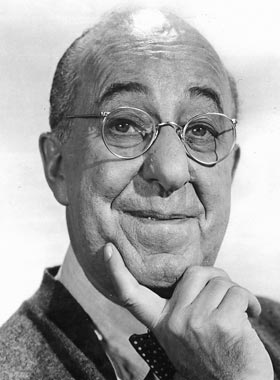
Eddie Cantor: Singer, songwriter ("Merrily We Roll Along"), comedian, author and actor, educated in public schools. He made his first public appearance in Vaudeville in 1907 at New York's Clinton Music Hall. He invented the name "March of Dimes" for the donation campaigns of the National Foundation for Infantile Paralysis (polio), a play on the "March of Time" newsreels. He began the first campaign on his own radio show in January 1938, asking people to mail a dime to the nation's most famous polio victim, President Franklin D. Roosevelt. Other entertainers joined in the appeal via their own shows, and the White House mail room was deluged with 2,680,000 dimes.
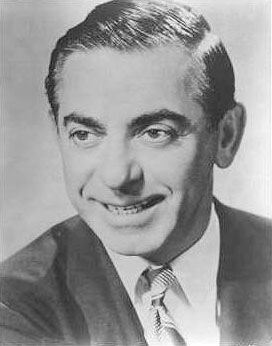
Farmhand: A worker on a farm.
Flapper: (in the 1920s) A fashionable young woman intent on enjoying herself and flouting conventional standards of behavior. By 1913, the "flapper" replaced the Gibson girl and became the new icon for women in the twentieth-century as the new woman. Drinking and smoking, dancing, exposing skin, were some of the traits that came with being a flapper girl. They were thin, flat-chested, and boyish-looking that defied old-fashioned norms. Dorothy Dunbar Bromley, a liberal writer during the 20s, summed up the flapper as "truly modern", "New Style" feminists who "admit that a full life calls for marriage and children" and also "are moved by an inescapable inner compulsion to be individuals in their own right."
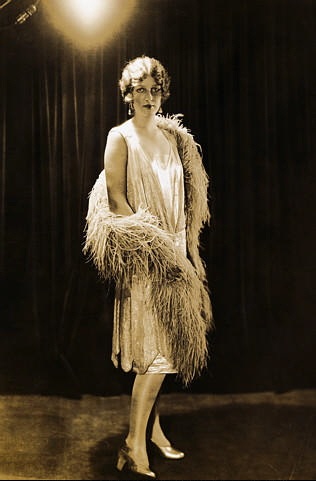
Florenz Ziegfeld: American theatrical producer who brought the revue to spectacular heights under the slogan "Glorifying the American Girl." During the World's Columbian Exposition in Chicago in 1893. The Follies of 1907, modeled on the Folies-Bergère of Paris but less risqué. The revue's combination of semi-nudity, pageantry and comedy was repeated successfully for 23 more years, until the Great Depression ended these annual spectaculars.

Follies Girls: The Ziefeld girls were a product of the famous impresario Florenz Ziegfeld (3/21/1869-1932). Dubbed the "Most beautiful girls in the world" (not even one ugly one). Many of the women who worked with the Ziegfeld shows moved on to become well-known stars and actresses.
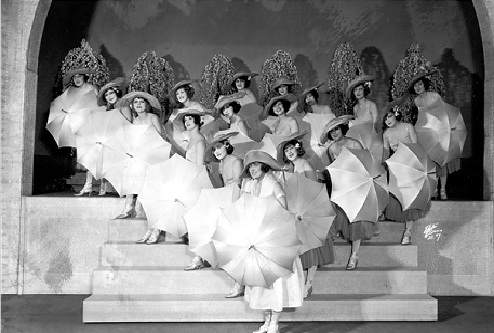
Goucho: A cowboy of the South American pampas.
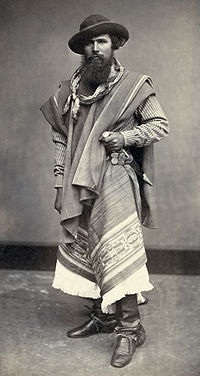
H. Ross Perot: Perot was born on June 27, 1930, in Texarkana, Texas, to an impoverished family. Perot started his own business, Electronic Data Systems, with money given to him by his wife. Today, the company is worth billions of dollars and has more than 70,000 employees. Perot has worked closely with the U.S. government over the past three decades, helping to conduct several rescue missions and prisoner negations with foreign nationals. In 1992, he split from the Republican Party to create the Reform Party. He lost the election then and again in 1996. He remains a philanthropist and often donates to charity.

Jack Mulhall: October 7th, 1887 -- June 1st, 1979 A silent-film leading man who made the transition to character actor in the sound era. The genial, good-humored Irishman was one of the highest-paid stars of the teens and twenties, but when his fortune (over a million dollars) was wiped out in the stock crash of 1929, he found himself forced to "stoop" to cliffhanger acting in order to put groceries on the table. Under these circumstances, one would expect Mulhall's portrayals in serials to be rushed, dispirited, and unenthusiastic. But the reverse was true: Jack Mulhall was the bounciest and most energetic player to be found in cliffhangers. Whether playing the hero, the hero's buddy, the hero's adviser, or even (very rarely) the villain, Mulhall was, to use an old but worthy cliche, "the life of the party."
+filesofjerryblake.netfirms.com

Rube: A country bumpkin.
Rudolph Valentino: Rudolph Valentino was an Italian-born American film actor who was idolized as the "Great Lover" of the 1920s. Valentino immigrated to New York City in 1913. In 1918 he went to Hollywood, where he played small parts until he was given the role of Julio in The Four Horsemen of the Apocalypse (1921). He immediately became a star. Valentino's sudden death at the age of 31 caused worldwide hysteria and several suicides.

Shirley Temple: Shirley Temple was easily the most popular and famous child star of all time. She got her start in the movies at the age of three and soon progressed to super stardom. Shirley could do it all: act, sing and dance and all at the age of five! Fans loved her as she was bright, bouncy and cheerful in her films and they ultimately bought millions of dollars worth of products that had her likeness on them. Dolls, phonograph records, mugs, hats, dresses, whatever it was, if it had her picture on there they bought it. Shirley was box-office champion for the consecutive years 1935-36-37-38, beating out such great grown-up stars as Clark Gable, Bing Crosby, Robert Taylor, Gary Cooper and Joan Crawford. By 1939, her popularity declined. Although she starred in some very good movies like Since You Went Away (1944) and the The Bachelor and the Bobby-Soxer (1947), her career was nearing its end. Later, she served as an ambassador to Ghana and Czechoslovakia. It was once guessed that she had more than 50 golden curls on her head.

Six Sisters of Betty: Betty Blake's six sisters were named Cora, Anna, Waite, Zuleki, Theodocia and Virginia. She also had two brothers: John and James.
Six Sisters of Will: Clement Rogers had six daughters - Sarah Clementine, May, Mary America, Zoe, Elizabeth and Maud Ethel. He also had three sons: Will, Robert Martin and Homer.
Sooners: soon·er [soo-ner] noun 1. a person who settles on government land before it is legally opened to settlers in order to gain the choice of location. 2. a person who gains an unfair advantage by getting ahead of others.

Texas Jack: Born July 27, 1846, Texas Jack was made famous during the late 1800's and early 1900's not only because of his career on the stage but as the hero of many "dime novels" which were popular at the time. Many of his true-to-life adventures were fictionalized in those exciting little books. He died at age 33.

Tutelo: One of the eastern Siouan tribes, formerly living in Virginia and North Carolina, but now extinct. The image is of Nikonha - the last full-blooded Tutelo. The photo was taken by researcher Horatio Hale in 1870. Nikonha was 106 at the time the photo was taken. http://www.victorianvilla.com/sims-mitchell/local/native/redis.htm
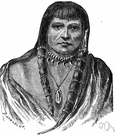
Vaudeville: 1) a light often comic theatrical piece frequently combining pantomime, dialogue, dancing, and song 2) stage entertainment consisting of various acts (as performing animals, comedians, or singers)
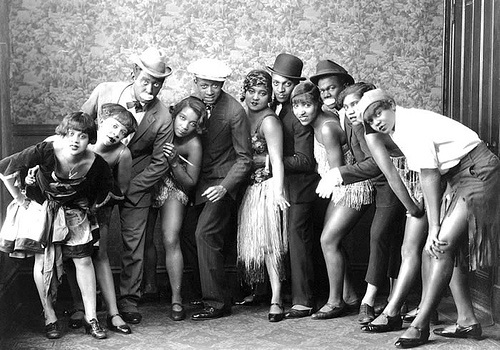
W.C. Fields: By nineteen he was billed as "The Distinguished Comedian" and began opening bank accounts in every city he played. At age twenty-three he opened at the Palace in London and played with Sarah Bernhardt at Buckingham Palace. He starred at the Folies-Bergere (young Charles Chaplin and Maurice Chevalier were on the program). He was in each of the Ziegfeld Follies from 1915 through 1921. He played for a year in the highly praised musical "Poppy" which opened in New York in 1923. In 1925 D.W. Griffith made a movie of the play, renamed Sally of the Sawdust (1925), starring Fields. Pool Sharks (1915), Fields' first movie, was made when he was thirty-five. He settled into a mansion near Burbank, California and made most of his thirty-seven movies for Paramount. He appeared in mostly spontaneous dialogs on Charlie McCarthy's radio shows. In 1939 he switched to Universal where he made films written mainly by and for himself. He died after several serious illnesses, including bouts of pneumonia.
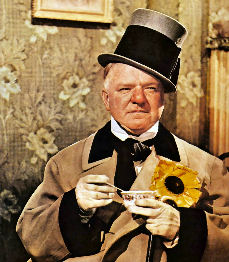
Ziegfeld Follies: A series of elaborate theatrical productions on Broadway in New York City from 1907 through 1931. They became a radio program in 1932 and 1936 as The Ziegfeld Follies of the Air.
